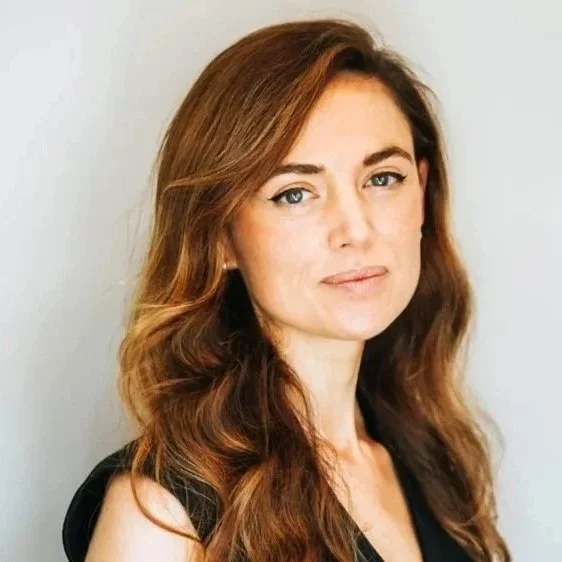Five Years of the Frontiers Policy Labs: Still a Long Way to Go
Prof. Jean-Claude Burgelman
Editor-in-Chief of the Frontiers Policy Labs
Published on November 3rd, 2025
The Frontiers Policy Labs published its first piece in November 2020. Five years later, the platform has grown into a global initiative: 219,098 video views, 14 million impressions, 40 opinion pieces, and a readership spanning 96 countries. The Frontiers Policy Labs website has been visited more than 303,000 times, and the platform has hosted 52 commentaries, 20 conversations, and 25 FiSci Policy Outlooks. More than 100 experts from 6 continents contributed.
We covered topics ranging from The Future of COP, Making sense of science, Academic freedom, Science diplomacy, Emerging technologies, Artificial intelligence and of course Open science.
Good numbers indicating the FPL serve a purpose. The Labs were born out of the COVID-19 crisis. Having just left the European Commission, where I had worked for two decades at the intersection of science and policy, I was invited by the Frontiers Chief Editor to help launch a laboratory dedicated to science policy. The aim was clear: to explore how open science could contribute to more effective policymaking. COVID-19 provided us with an immediate and pressing case study, testing efficiency—and shortcomings—of science-based pandemic fighting policy around the world. We mobilized expertise not only to inform covid policy, but also to draw lessons for future crises.
This work helped define the scope and mission of the Frontiers Policy Labs: to rethink the way societies develop policies, using solid scientific evidence rather than opinions or beliefs. Our motto, rethinking the world with science, captures this ambition.
How to contain COVID 19 and its effects was only the start. In the meantime, we aim to contribute to policy debates not only on health, but also on planetary sustainability, artificial intelligence, biotechnology, and other transformative forces shaping the 21st century. Following Carlota Pérez’s analysis (Technological Revolutions and Financial Capital: The Dynamics of Bubbles and Golden Ages. London: Elgar 2002) of the historical transformations societies have undergone since the Agrarian Revolution, the world is currently experiencing another techno-economic paradigm shift, in which emerging technologies such as AI and renewable energy are reshaping existing institutions, practices, and policy.
Old policy frameworks that worked for the previous post industrial techno-economic period no longer suffice let alone work. New, science-based policies are therefore urgently needed. As Yuval Harari reminds us in 21 Lessons for the 21st Century (2018), the global challenges we face now are profound and interconnected. Some call it a polycrisis, but we prefer to call it a ‘’rethinking’’ of the old order. Here, the Frontiers Policy Labs seeks to contribute by providing evidence-based outlooks on these challenges, from sustainability and open science to AI governance and beyond.
Our initiative also reflects on the changing role of science and innovation itself. The post–World War II science system was built on a transatlantic model that no longer reflects today’s realities. With the advent of AI and new digital infrastructures, research and innovation are entering uncharted territory—yet science policies lag behind. Rethinking science governance is therefore another pillar of our work through Policy Outlooks, Evidence Snapshots, and Commentaries.
In sum, the Frontiers Policy Labs were launched on the recognition that the world is undergoing profound transformation, driven by multiple and overlapping challenges-which we prefer to view as an opportunity for collective reinvention. That is why I called this piece ‘’still a long way to go’’. Rethinking, in a scientific way, sustainability, patient friendly health systems, an open science modus operandi, AI as a transformative tool for the commons … in one word, rethinking how science should work in the 21st century.
A long way to go, therefore—but we are not traveling alone. As the African saying goes, “If you want to go fast, go alone; if you want to go far, go together.” Dozens of leading academics, to start with the members of our advisory board, contributed (for free!) to our platform. Without them, the Policy Labs would mean nothing. Their pieces make their way to World Federation of Public Health Association, International Science Council, Falling Walls, World Science Forum, Global Young Academy, Microsoft, European Commission, and to 100ds of policy makers and scientists all over the world.
Looking ahead, three clusters of challenges stand out for the coming decades: a healthy planet for healthy people, the convergence of AI and biotechnology for the common good, and the renewed urgency of democracy and peace.
How our societies manage these issues will shape the remainder of the 21st century. The scientific community has a front-row seat—and a responsibility—to guide these transformations.
The Frontiers Policy Labs’ mission is to support this effort.
In that respect, I am very pleased to announce a major new initiative we launch in the context of the World Economic Forum: Science House — an exciting new venue at the WEF Annual Meeting in Davos in January 2026. Science House is envisioned as a ‘home for science,’ bringing together Nobel Laureates, Science Ministers, and leaders from business and technology to bridge the gap between science, policy, and industry during key global conversations. Fully aligned with the Frontiers Policy Labs’ mission, the Science House will not compromise on science and its findings. On the contrary. But it will look for pragmatism on what it implies to society. Reinventing our present world will not go overnight indeed!
Our first five years were just the beginning. Much remains to be done — the Frontiers Policy Labs still have a long way to go.
Copyright: © 2025 [author(s)]. This is an open-access article distributed under the terms of the Creative Commons Attribution License (CC BY). The use, distribution or reproduction in other forums is permitted, provided the original author(s) or licensor are credited and that the original publication in Frontiers Policy Labs is cited, in accordance with accepted academic practice. No use, distribution or reproduction is permitted which does not comply with these terms.
Paolo Vineis
Professor of Environmental Epidemiology, Imperial College London
Scientific Director, Regenerative Society Foundation
“Now I suggest that a new modality could be introduced, a proactive effort to facilitate the identification of actionable solutions to the environmental crisis.”
Ruth Morgan
Professor of Crime and Forensic Science, UCL
Director, UCL Centre for the Forensic Sciences
Co-Director, UCL Artista Institute
“It is possible to argue that these technological changes are going to change what science is and can be.”
Ona Ambrozaite
Director of the US East Coast, UK Science and Technology Network
“We see signals for the need to ‘rewire’ how science diplomacy is modeled.”





